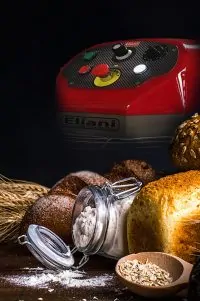
When creating your dough, you probably put a lot of time and effort into choosing the correct ingredients, as well as ensuring that you give each batch the time and love it deserves. However, that’s just not enough - in order to achieve a perfect product, the right equipment must also be used. There are two types of dough mixers available – professional and commercial. It is definitely worthwhile investing in a professional dough mixer, and here’s why:
Dough Mixers are an essential element for ensuring success – they’re not just for mixing raw ingredients, but to also push water into flour and increase absorption through mechanical action. The better the dough mixer is at achieving this, the more water will be absorbed into the flour, increasing the quality of your dough.
A professional dough mixer always has double speed, and sometimes a double engine too; the double speed oxygenates the dough very well and much faster by increasing the mechanical action of pushing water into flour, therefore increasing the hydration. In addition, professional models give a thoroughly mixed, homogeneous batch of dough with significant elasticity. Having two motors increase these capabilities even more because, when double speed is activated, it accelerates the spiral, allowing the bowl to rotate at the same speed and increase the friction between the spiral and dough. It has been found that with the commercial mixer less hydration occurs and, overall, they produce relatively inelastic dough.
Following this, professional dough mixers have rounded bowls, and commercial dough mixers often have bowls with sharp corners where dough can get stuck and become unreachable, especially when the quantity of the dough is small. The material of the bowl is also important – professional die-cast bowls are made of a material that reduces vibration and heat conduction, and thus it doesn’t heat the dough as much as a commercial mixer by a fair amount. Commercial mixer bowls often vibrate a lot, conducting heat and warming the dough which leaves the chef with difficulty when handling the product once mixed.
The size and shape of the spiral is very important also – professional mixers have spirals with a radius that is smaller at the end and with the smallest distance between the end of the spiral and the bottom of the bowl. The commercial mixers sometimes have the same shape and size spiral, but often with larger distances between the end of the spiral and the bottom of the bowl, giving a lower quality knead, sometimes unsatisfactory, compared to professional mixers.
In summary, a professional dough mixer is a definite worthwhile investment if you wish for your product to be adequately hydrated, not over-heated, and if you wish your dough to be correctly kneaded without manual intervention.
Some facts and quotes in this blog post were taken from the book 'Let’s Start From the Flour' by Luigi Ricchezza.
If you’d rather watch and not read, here is Davide D’Auria from Eurostar Commodities, an Italian Pizza Expert, showing why he prefers a professional mixer: